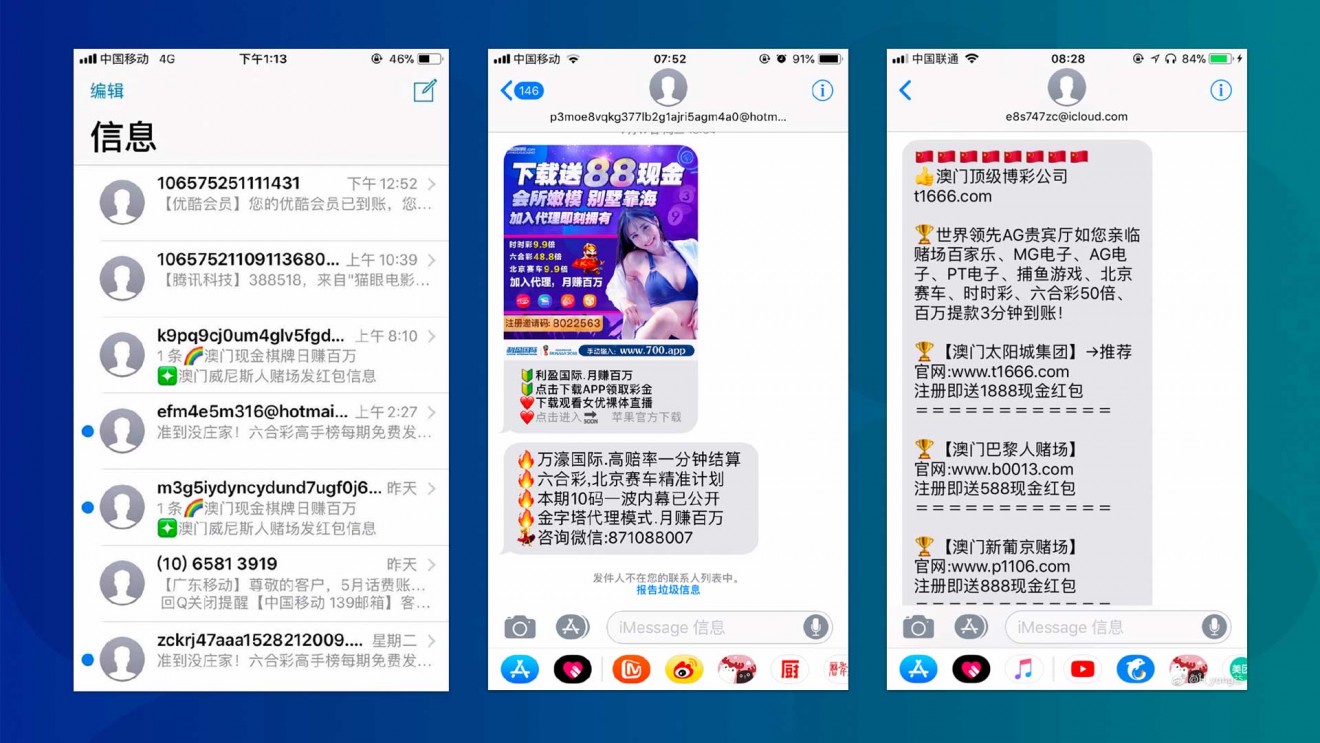 3363
3363
 2018-07-25
2018-07-25
No one likes spam messages. (Well, except for the people who send them.)
Chinese iPhone users say they’ve been bombarded in recent days by an unusual barrage of iMessage spam, many of them claiming to be from actual casinos in Macau. Most carry links to WeChat accounts or dubious betting websites offering online games and gambling on live stream.

Gambling is illegal in mainland China, except for two officially-sanctioned lotteries. During the World Cup this year, unauthorized lottery apps were seen suspending their football betting features after criticisms from state media.
China’s three major mobile carriers have software in place to filter out spam SMS, but they have no control over texts sent via iMessage and other messaging apps. That’s because while SMS texts move through cellular networks, iMessages go through Apple’s servers over the internet.
Mobile carriers can block SMS messages by detecting objectionable keywords -- but Apple can’t do the same on iMessage since texts sent between Apple devices are encrypted end-to-end.
All this leaves the burden of tackling iMessage spam to users.
According to a support page that Apple referred us to, one easy but tiresome solution is to block the phone number or email address of each individual spammer (tap on “i” button > tap the name/email/phone number > tap “Block this Caller”).
Alternatively, you can kill iMessage alerts from all senders who aren’t in your contact list (Settings > Messages > turn on “Filter Unknown Senders”). You can still read the filtered messages by going to the “Unknown Senders” tab in iMessage.
If you want to report an iMessage spammer to Apple, you can click on the “Report Junk” link under the message.
Source: abacus news